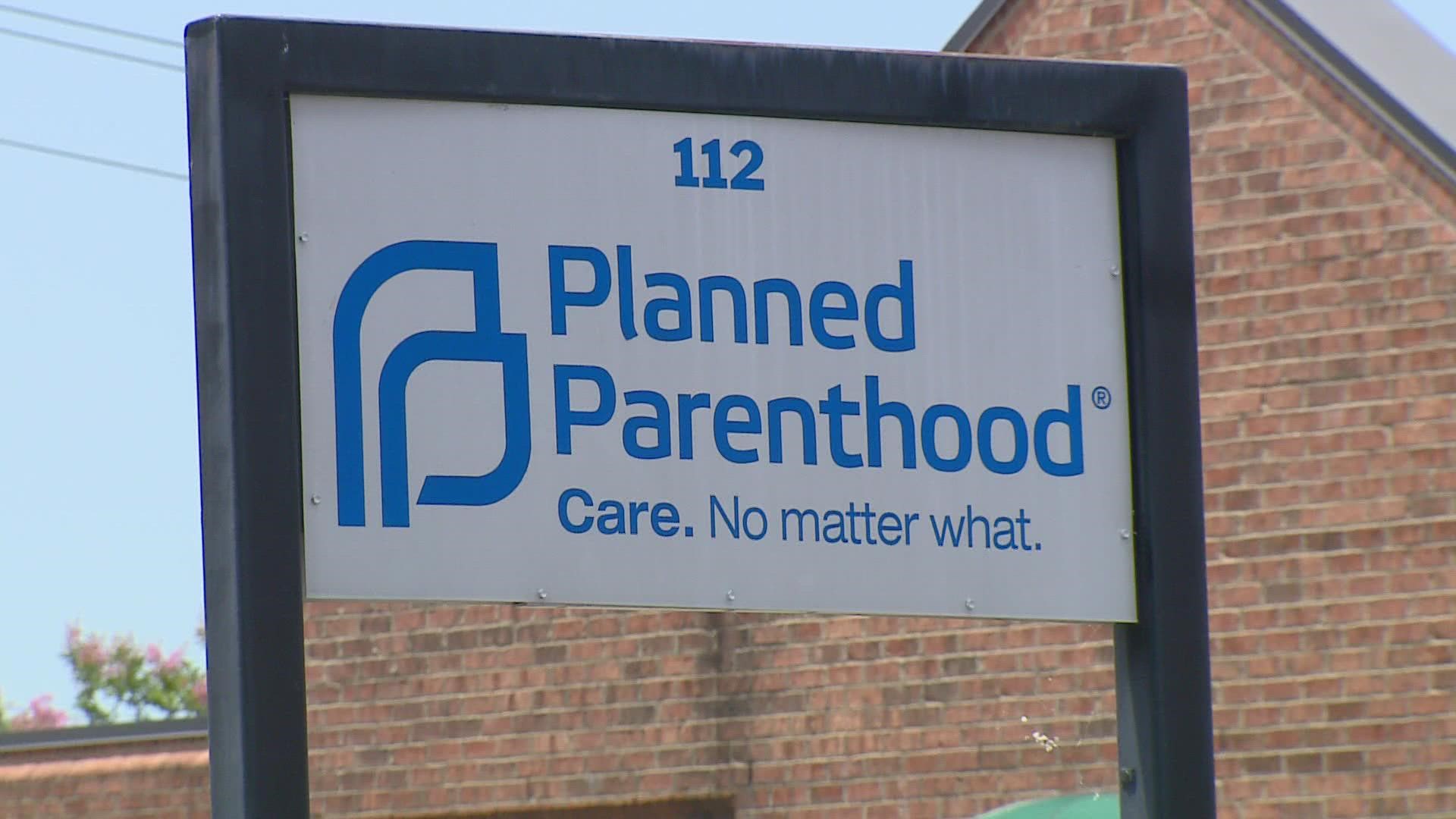GREENSBORO, N.C. — Abortion is still legal in North Carolina.
The Kaiser Family Foundation reports more than 28,000 legal abortions occurred here in 2019. NCDHHS reports more than 90 percent of them happened at 12 weeks or earlier in the pregnancy.
There are a few restrictions in our state. Among them, women must wait 72 hours before the procedure can take place.
WFMY News 2's Grace Holland dug into some of the implications this decision could have in our state and across the country.
Question 1: When can you get an abortion in North Carolina?
There's a bit of a gray area on this. Our state-approved a 20-week ban in the past, but a 2019 court decision made it unenforceable. That decision cited Roe v. Wade.
Now, it would be up to democratic Attorney General Josh Stein to reactivate that law. Republican state lawmakers Tim Moore and Phil Berger called on Stein to make it happen.
"We respectfully call on you and the Department of Justice to take all necessary legal action to lift the injunction barring our state's abortion restrictions," Moore and Berger wrote in a letter to Stein.
Stein did not immediately respond Friday. He offered some legal analysis.
"The impact of that case will need to be determined. Abortions prior to 20 weeks will remain legal," Stein said.
NCDHHS tracks the number of abortions each year. In 2019, less than ten percent of them were after 20 weeks gestation.
Question 2: What does abortion look like in North Carolina?
Nine counties in our state have abortion clinics, including Guilford and Forsyth.
Of all the procedures done, NCDHHS reports 48 percent are surgical and 45.7 percent are with a pill.
"The number of pills you take depends on where you are at in your pregnancy and gestational weeks." The first pill you take at one of our health centers with a medical provider and then you can take the rest of them at home," Jillian Riley said.
Riley is the Public Affairs Director for Planned Parenthood South Atlantic.
Planned Parenthood said in our state, you cannot get those pills through telehealth.
Question 3: Will people come from out of state to seek abortions in North Carolina?
Our state borders several others which could ban abortion.
The Kaiser Family Foundation said 18 percent of people who got abortions in North Carolina came from somewhere else.
A Greensboro clinic said patients came here even with Roe in place because of abortion restrictions in other states.
"We've seen several patients from Texas even come in that found out they were pregnant right at six weeks and they've had to come to one of our North Carolina clinics to be seen," Kelly Flynn said.
Flynn is President and CEO of A Woman's Choice, an abortion clinic.
North Carolina A&T Interim Nursing Director Dr. Amelia Davis expects the number of people traveling to our state for the procedure to increase, which she said could impact care.
"It could challenge the capacity and the limitations for these clinics that support these kinds of services for these patients," Davis said. "It will definitely impact the access to service, possibly to our patients in our state as well as others seeking that healthcare."
Question 4: What does overturning Roe v. Wade mean for other constitutional rights decided by the Supreme Court?
Roe was long considered a settled constitutional right among political and legal experts.
It was one of several cases tied to the 14th Amendment, which protects a right to privacy.
Justice Samuel Alito said a right must be "deeply rooted in this nation's history and tradition" and that abortion was illegal in most states at the time the 14th Amendment was adopted.
Winston-Salem State University history and politics professor Denise Nation said she believes the court could overturn other rights with this argument.
"If the court is willing to overturn its own precedent on this particular issue, we have to be cognizant that the court is probably open to overturning other precedents," Nation said.
Question 5: What does this mean for future challenges to rights decided by the Supreme Court?
Michael Gerhardt is the Burton Craige Distinguished Professor of Jurisprudence at UNC-Chapel Hill. He believes other rights could face challenges.
Justice Clarence Thomas wrote in his opinion that the court should reconsider cases like same-sex marriage and contraception.
"Supreme Court decisions will often signal where the litigation should go. That's part of the point of Justice Thomases concurrence, he's signaling okay let's start challenging these," Gerhardt said.
That doesn't mean the court would overturn those decisions.
Alito denies this logic can be extended to other cases in his opinion. He writes that protected rights like "intimate sexual relations, contraception and gay marriage" are "Fundamentally different" from abortion because it destroys fetal life and does not protect liberty.
Chief Justice John Roberts also noted in his own opinion that while he agreed with upholding the Mississippi abortion ban at the center of this decision, he would not have overturned Roe v. Wade.

